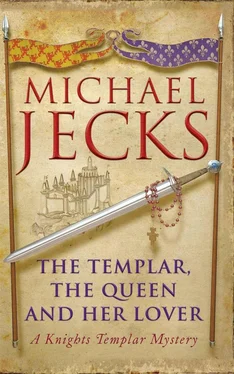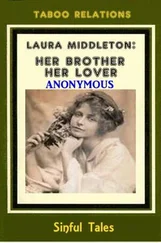Michael Jecks - The Templar, the Queen and Her Lover
Здесь есть возможность читать онлайн «Michael Jecks - The Templar, the Queen and Her Lover» весь текст электронной книги совершенно бесплатно (целиком полную версию без сокращений). В некоторых случаях можно слушать аудио, скачать через торрент в формате fb2 и присутствует краткое содержание. Год выпуска: 2014, ISBN: 2014, Издательство: Headline, Жанр: Исторический детектив, на английском языке. Описание произведения, (предисловие) а так же отзывы посетителей доступны на портале библиотеки ЛибКат.
- Название:The Templar, the Queen and Her Lover
- Автор:
- Издательство:Headline
- Жанр:
- Год:2014
- ISBN:9781472219855
- Рейтинг книги:5 / 5. Голосов: 1
-
Избранное:Добавить в избранное
- Отзывы:
-
Ваша оценка:
- 100
- 1
- 2
- 3
- 4
- 5
The Templar, the Queen and Her Lover: краткое содержание, описание и аннотация
Предлагаем к чтению аннотацию, описание, краткое содержание или предисловие (зависит от того, что написал сам автор книги «The Templar, the Queen and Her Lover»). Если вы не нашли необходимую информацию о книге — напишите в комментариях, мы постараемся отыскать её.
The Templar, the Queen and Her Lover — читать онлайн бесплатно полную книгу (весь текст) целиком
Ниже представлен текст книги, разбитый по страницам. Система сохранения места последней прочитанной страницы, позволяет с удобством читать онлайн бесплатно книгу «The Templar, the Queen and Her Lover», без необходимости каждый раз заново искать на чём Вы остановились. Поставьте закладку, и сможете в любой момент перейти на страницу, на которой закончили чтение.
Интервал:
Закладка:
Yes. He was safe enough. The last days had been a panic, what with the discovery of Arnaud’s insane murders, and then bolting as he had had to. But surely now he was secure, because if everyone thought he was dead anyway, they wouldn’t bother trying to find him.
It had been many years since he was last safe from instant arrest. Once it had been the murderous devils under that cool, calm, outwardly kind Bishop Jacques Fournier. At least the man gave the impression that he was actually interested in his victims. He didn’t merely arrest them, torture them quickly and pass them on to the waiting executioners. There were plenty who would do exactly that, after all.
Fournier was a man who saw it as his duty to destroy every aspect of their heretical faith. He arrived without the apparent desire to execute many people. That was itself refreshing for the Waldensians of the area. Why should they be burned at the stake, anyway? What was their crime? Their faith was no less Christian than any other. They believed in preaching, they believed in the same seven principles of the Catholic faith and the sacraments, but they did not believe in Purgatory. That was a mad invention of a venal pope, so Jean’s father had told him. And it was matters like that, matters of deep philosophical significance, that had made the whole Church turn against them.
But what was Purgatory? It was a Catholic invention that allowed corruption and greed to rule. If there was Purgatory, there was an opportunity for the living to pray for the dead, and if they could pray, they could pay the Church to help them do so. Masses for the dead could have little impact — a man was judged by his life, not by the number of Masses that were paid for by his last will. And Indulgences were nothing more than an appalling proof of cynical avarice on the part of the Pope and his bishops. Who could think that paying money into a religious body like the papacy could influence God? No, that was a purely human matter, not something for God.
God would not be impressed by His people today. That was why the Holy Land had been lost to Christendom thirty-odd years ago. When Acre fell in 1291, it was proof, if any were needed, that God had lost all love for Christians. How could He have allowed the land of His son to be taken over by the heathens who now inhabited it? If the Christians had been more honourable, less sinful, more obedient to His will, they would still own the kingdom of Jerusalem and all the other Crusader lands. But no, the Christian faith had fallen into shame and ignominy. Priests would take money and concubines, and with felons and sinners holding Masses supposedly in honour of God, was it any surprise that the faithful should start to emulate them?
For Jean’s family and the other ‘Poor of Lyons’, it was crucial that the Mass should be held by those who were without sin. Those who were pure, who were uncorrupted by the world, should officiate at the religious services. What benefit was there for a man or woman who received the sacrament from a corrupt priest? None. Only a virtuous man could intercede for their souls. Even a woman who knew the correct words was better than a priest who was sunk in dishonour.
His breakfast completed with a handful or two of flour mixed with water and roasted on sticks, he rose. If there was no need to worry about where he went, he would have to make a choice. In the past he would have bolted southwards, back towards the warmer lands and the mountains, those places where a man might live free and safe, away from anyone. No need to wear the yellow cross on his back to mark him out as a heretic, so long as he avoided towns. He should be safe enough.
Except, if he were seen, it could be still more dangerous for him. Fournier had tried to avoid killings, but he might have gone. The man in charge now could be more dangerous. The idea of being captured by someone more fervent than Fournier didn’t bear thinking about. Men like that would break limbs and kill peasant folk without a qualm, and order wine to celebrate the destruction of a soul afterwards.
South was his own homeland. He missed the high mountains, the bright sunshine, the deep blue skies, the freshness of the pastures in springtime, the flowers, the cold, clean streams … his wife and family.
If all he had there was his memories, there was little point in worrying about it. Better to go somewhere else.
Sir John de Sapy was delighted to learn that at last they were going to be riding on. He had little interest in the route they were taking; all he wanted was to reach Paris, complete his mission, and rest with some of the whores in the wine shops that abounded in the city.
‘You don’t seem keen to get there?’ he enquired of Sir Charles of Lancaster.
‘Hmm? Have you been to Paris?’
‘No. It is a place I have heard much about, though. The French sluts are supposed to be more inventive than the wantons from Aragon.’
Sir Charles glanced at him. His eye was amused. ‘You have not been there either, then?’
Sir John was defensive. ‘I have travelled widely in our kingdom. I’ve not had the opportunity or inclination to wander farther.’
‘Then you will see and learn much.’
Sir John frowned quickly. He was of an age with Sir Charles, so he was unsure how to take the man’s insouciance. There was an arrogance in his manner that implied a degree of experience which Sir John could only guess at. ‘You have been there before — what were your impressions?’
Sir Charles smiled openly at that. ‘How to explain?’
How indeed. The last time he visited Paris, he had been a renegade, a fugitive from the wrath of King Edward II. He was only one of hundreds who fled the kingdom in order to save their lives, terrified of the King’s retribution. They had supported the man he loathed more than any other, Lancaster, and once he had executed him, the King set upon any who had served him. Hundreds were captured and executed as traitors, their limbs and heads decorating spikes all over the realm, and the few who escaped, like Sir Charles, were glad to find a country where they could live awhile in safety.
Never one to seek peace for long, Sir Charles heard of some who were planning to return to England by rescuing Roger Mortimer from the Tower of London. They thought that this mighty general could perhaps save both England and them. Mortimer was known for his courage, his intelligence, and his integrity. It was his relentless campaigning in Ireland which had protected that part of the kingdom from Edward the Bruce’s invasion, thrown the Bruce back, and finally led to his death.
But when Sir Charles got to Paris, those who declared themselves co-conspirators were so inept and foolish that he had soon realised that there was no possibility of saving Mortimer. Better by far to save himself, because it was plain even to Sir Charles that such a group must have been deeply infected with the King’s spies. And a man who was known to the King as a member of the conspiracy was likely to have a very short life expectancy on returning to England.
He was in Paris for long enough to lose all his money and his plate to the pawnbrokers. Everything was so expensive, and no matter how much he or Paul, his man, tried to haggle, the prices appeared to remain high for a foreign gentleman in that city. In the end they were forced to leave. And then they had got into a little trouble at an inn, when a fight started. It was long ago, now, but the memory still rankled. A swarthy little toad-like shite had spat at him, and he and Paul had killed him and his friends.
After that, there had been a certain urgency about leaving the area before anyone could catch up with them, and they had made their way to Galicia, to Santiago de Compostela, which was where he had met Simon and Sir Baldwin.
Читать дальшеИнтервал:
Закладка:
Похожие книги на «The Templar, the Queen and Her Lover»
Представляем Вашему вниманию похожие книги на «The Templar, the Queen and Her Lover» списком для выбора. Мы отобрали схожую по названию и смыслу литературу в надежде предоставить читателям больше вариантов отыскать новые, интересные, ещё непрочитанные произведения.
Обсуждение, отзывы о книге «The Templar, the Queen and Her Lover» и просто собственные мнения читателей. Оставьте ваши комментарии, напишите, что Вы думаете о произведении, его смысле или главных героях. Укажите что конкретно понравилось, а что нет, и почему Вы так считаете.












